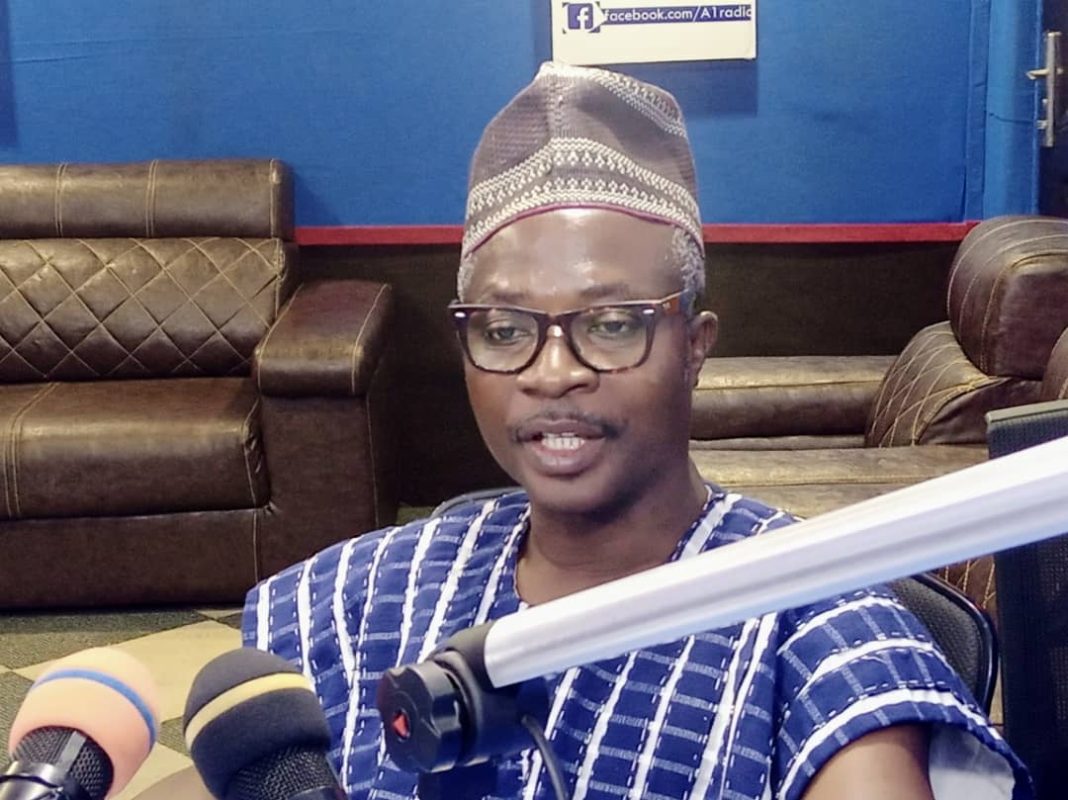The DCE for Builsa South, Daniel Kwame Gariba, has explained that the objectives of the government’s One Village One Dam project vary from district to district. Mr. Gariba added that in the Builsa South District for example, the major objective for building the small earth dams were to help animal farmers water their livestock.
The DCE who doubles as the Dean of MDCEs in the Upper East Region continued to argue that the Builsa South District are not noted for dry-season and so, it may be wrong to evaluate the success of the dam under 1V1D through dry season farming.
A better way, Mr. Gariba said, would be to ask animal farmers of the importance of the dams.
He made these comments when he spoke on A1 Radio’s Day Break Upper East Show recently in response to a report titled “Ghana’s Oil Money on Dried Dams,” which was conducted by NORPRA, convener of the Coalition of Northern Ghana CSOs, and funded by the Africa Center for Energy Policy (ACEP).
“If you come to Builsa South, there are dams that are very functional, full to capacity and when you go there, you don’t have people who are into dry season farming. It is not like when you go to Navrong, Paga or the Bawku area where people even scoop out, dig wells themselves to get water in order to get water to farm. In Builsa South, it is different.”
“We rear a lot of animals. Apart from the farming, we rear a lot of animals; cattle, goats and sheep. In the dry season, most of these animals stray off to areas they think they can get water to drink and grass to feed. In the process, they get stolen. For sheep, they congregate a lot. When they are in a community together, you would find that in the night, they congregate and day time they disperse and this allowed people to steal a lot of sheep.”
“For me, in Builsa South, that is where I have issues in the report. The report should have identified whether dry season farming is very prolific or vibrant in Builsa South. In their report, they should have known that when it comes to dry season farming, in Builsa South, it is not that vibrant,” he said.
Mr. Gariba explained that the reason there was hue and cry for dams in Builsa South, was so that animal farmers could water their animals year-round.
Background
A number of the dams under one of the government’s flagship programmes, One Village One Dam have been completed; however, many of them fail to retain water year-round and, as such, are incapable of meeting the set objectives.
This is according to research findings, titled “Ghana’s Oil Money on Dried Dams,” was conducted by NORPRA, convener of the Coalition of Northern Ghana CSOs, and funded by the Africa Center for Energy Policy (ACEP).
One of such dams is located in Gbedembilisi, in the Builsa South District of the Upper East Region.
A farmer, Adioku Akandakum, who is quoted by the report, said, “our Assemblyman told us that he took you to the dam and he walked to the middle of the dried dam with you, so you yourself can confirm that the dam is totally dried up and there is nothing like vegetables or crops there. This is the reason we voted ‘strongly disagree.”
Another farmer said, “I think the people the government used as consultants and contractors for the construction of these dams do not either have the technical expertise to do so or they just decided to do something to represent something and chop the money. I am saying this because there is a place in this community where some people just came with tipper trucks and dug out the soil for road construction. If you go there now, you will see plenty of water. That is where our animals get a very reliable source of water to drink. I don’t know how much money was spent in constructing this dried 1V1D project in this community, but I am sure the money for the consultant and the contractor is certainly thousands of times more than what was spent digging out the soil for the road construction project elsewhere. Excuse me to say that the thing that they spent nothing digging rather contains plenty of water to help us, but the dam that they spent plenty of money constructing has nothing in it.”
The report invited the government to investigate procurement processes leading to the award of contracts for the construction of dams while reviewing the policy to ensure that the objectives are met.
“It is recommended that; All 1V1D projects be audited by the Audit Service, as was stated in the 2018 Budget Statement and Economic Policies of the Government to ascertain value for money and promote accountability of Ghana’s petroleum revenue. 1V1D policy be reviewed to ensure the objectives for IPEP and ABFA achieved. The review of the policy should take into consideration technical advice of GIDA and how functional small dams that predated 1V1D projects in northern Ghana were designed and constructed. Ground water resources in farming communities of northern Ghana can be explored and developed as a complement or alternative to 1V1D for year-round farming to achieve the objective of increased agricultural productivity, food security and jobs. Investigation into the procurement process leading to the award of contracts for the construction of the dams should be carried out. The profile, track records and beneficial owners of the consultants and contractors of 1V1D should be included in the investigation not only to establish whether or not sound engineering principles were adhered to and applied in the design and construction of the dams but also to promote transparency and accountability in public resource management.
See full document here: Ghana’s Oil Money on Dried Dams
Source: A1radioonline.com|101.1MHz|Mark Kwasi Ahumah Smith|Ghana


